New research from Bright Network shows what graduates want and how employers can address their needs.
The Bright Network ‘What do graduates want?’ 24/25 research report shares the thoughts, concerns and expectations of over 14,000 students and recent graduates.
Full of actionable advice and guidance for employers looking to address the findings, the industry-leading report is essential for anyone looking to attract and retain the best emerging talent in the UK.
Three key themes from the report:
1. Generative artificial intelligence (GenAI)
We know that GenAI is something more and more students are becoming comfortable with. The research found that over half are using GenAI weekly or daily, and the number one reason is to support job applications. Additionally, 47% expect to use GenAI at some point in their application processes.
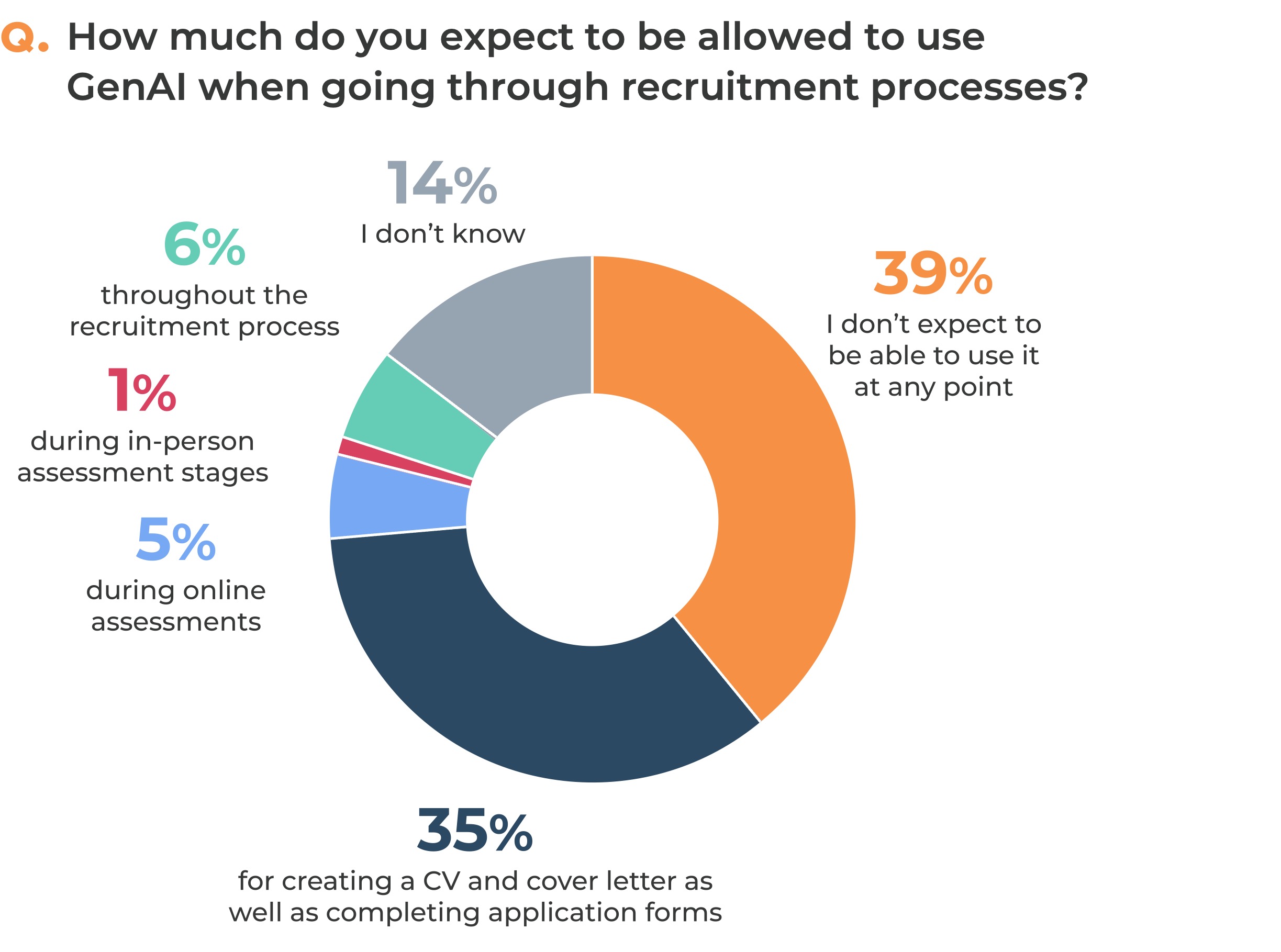
When explicitly asked about GenAI and job applications, 45% of students say they are making more applications this year because of the tools.
This fits the sentiment employers are sharing – that applications are up this year. Employers are also saying that low quality is coming through on applications and they’re recognising signs of poor GenAI usage, like overly wordy or similar-looking answers.
The research also found that more Black heritage students are using GenAI than white students, and that neurodiverse students believe it is a useful tool for them to support with their condition.
Bright Network advice
Employers must be aware of this increased usage and be prepared for the knock-on effects. Be clear with students where it can and cannot be used in processes and support good usage with examples of what poor vs good AI-assisted applications look like.
Be aware that blanket banning could lead to an adverse effect on diverse groups, who may end up being disproportionately penalised because of their higher usage rates.
2. The impact of intersectionality
Students from multiple underrepresented groups are struggling with barriers to their careers.
Confidence around securing a graduate role has dropped for the first time since the pandemic, from 57% in the 23/24 report to 54% this year.
When you look at this for diverse groups, there’s variance, with state-educated, LGBTQ+ and neurodiverse students at lowest confidence and Black heritage students staying consistently most confident year-on-year.
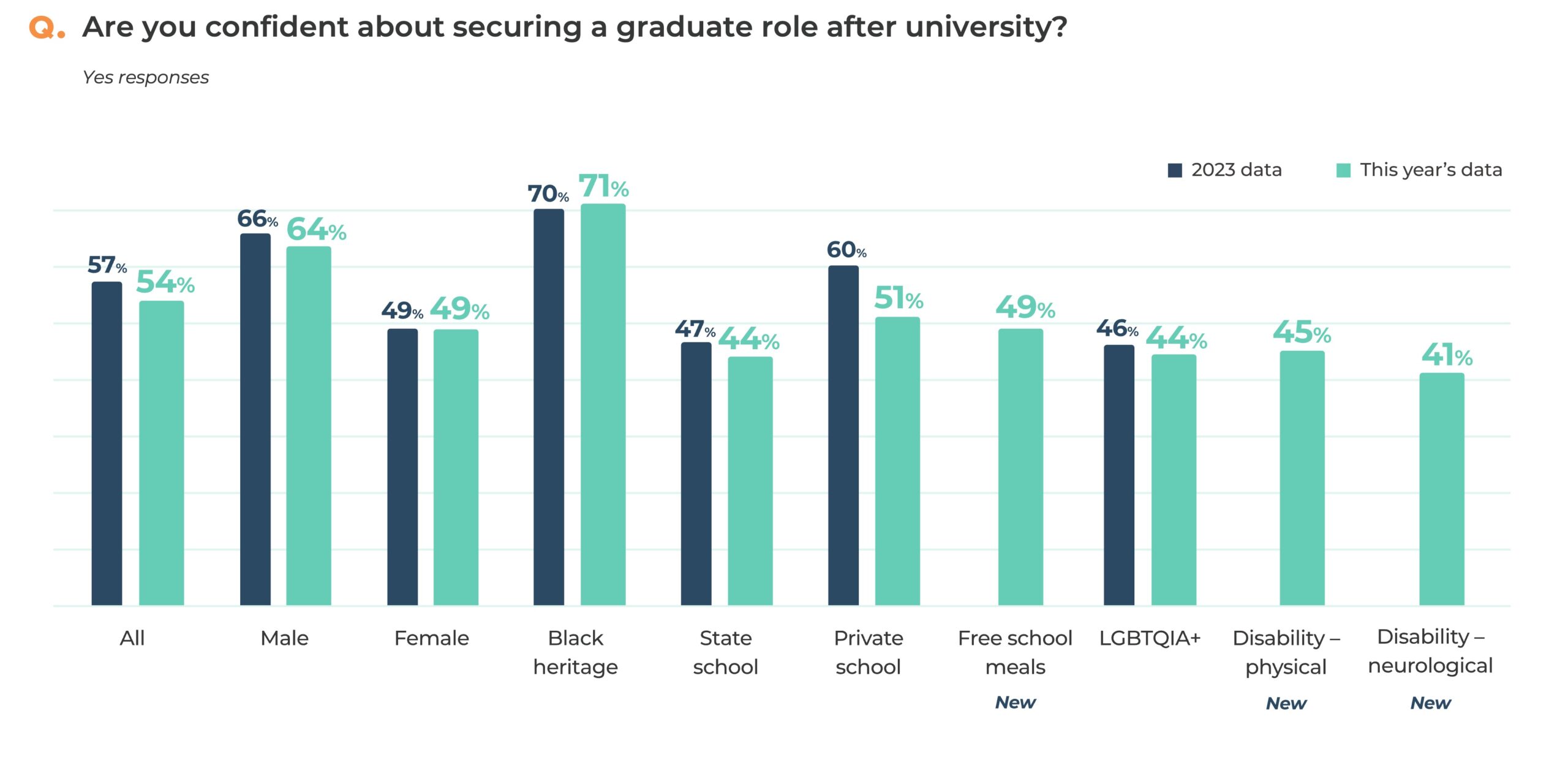
When you layer demographics on top of one another, confidence is significantly impacted, dropping as low as 36% for females with all three social mobility indicators (state-educated, eligible for free school meals and first in their family to attend university).
And while at face value Black heritage student confidence is strong overall, when looking at responses for Black heritage students from lower-socio economic backgrounds, confidence levels drop significantly.
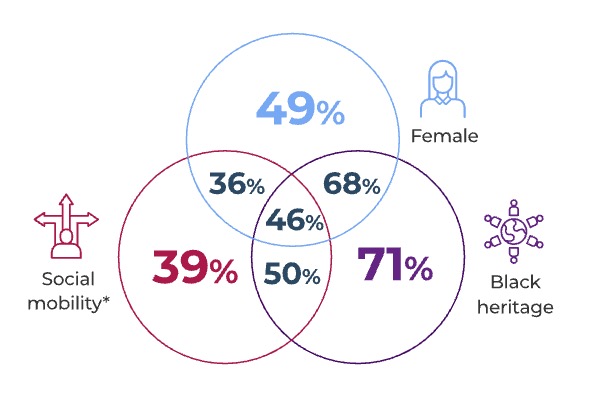
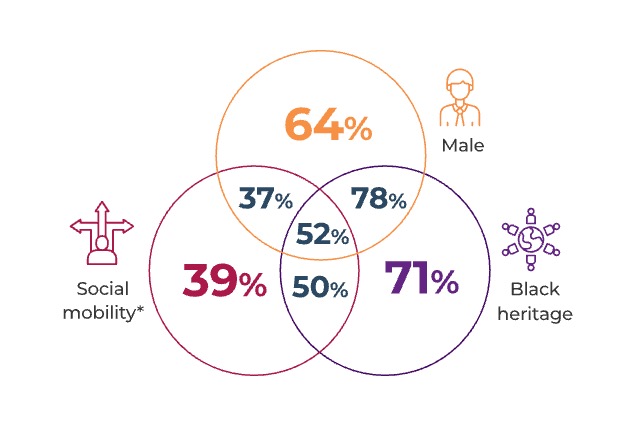
Bright Network advice
Considering the experiences and challenges of candidates who intersect multiple demographics is essential if employers want to support them into their organisations.
It’s about wholly understanding the impact felt by the layering of different and multiple barriers, so employers need to ask the right questions and do their research to really get under the skin of this.
Once that’s done, tailored initiatives such as coaching programmes, mentoring schemes and showcasing representative role models can be put in place to utilise this understanding.
It’s a challenging ask and it won’t be possible to do everything at once, so employers should focus on priority candidate personas first and supercharge personalisation to them.
3. Skill misalignment
Each year we gather the difference between what students think employers are looking for vs what they are actually looking for, taken from a survey of 50 leading graduate employers. There’s more employers can be doing to align students with what skills they need when applying to and joining their schemes.
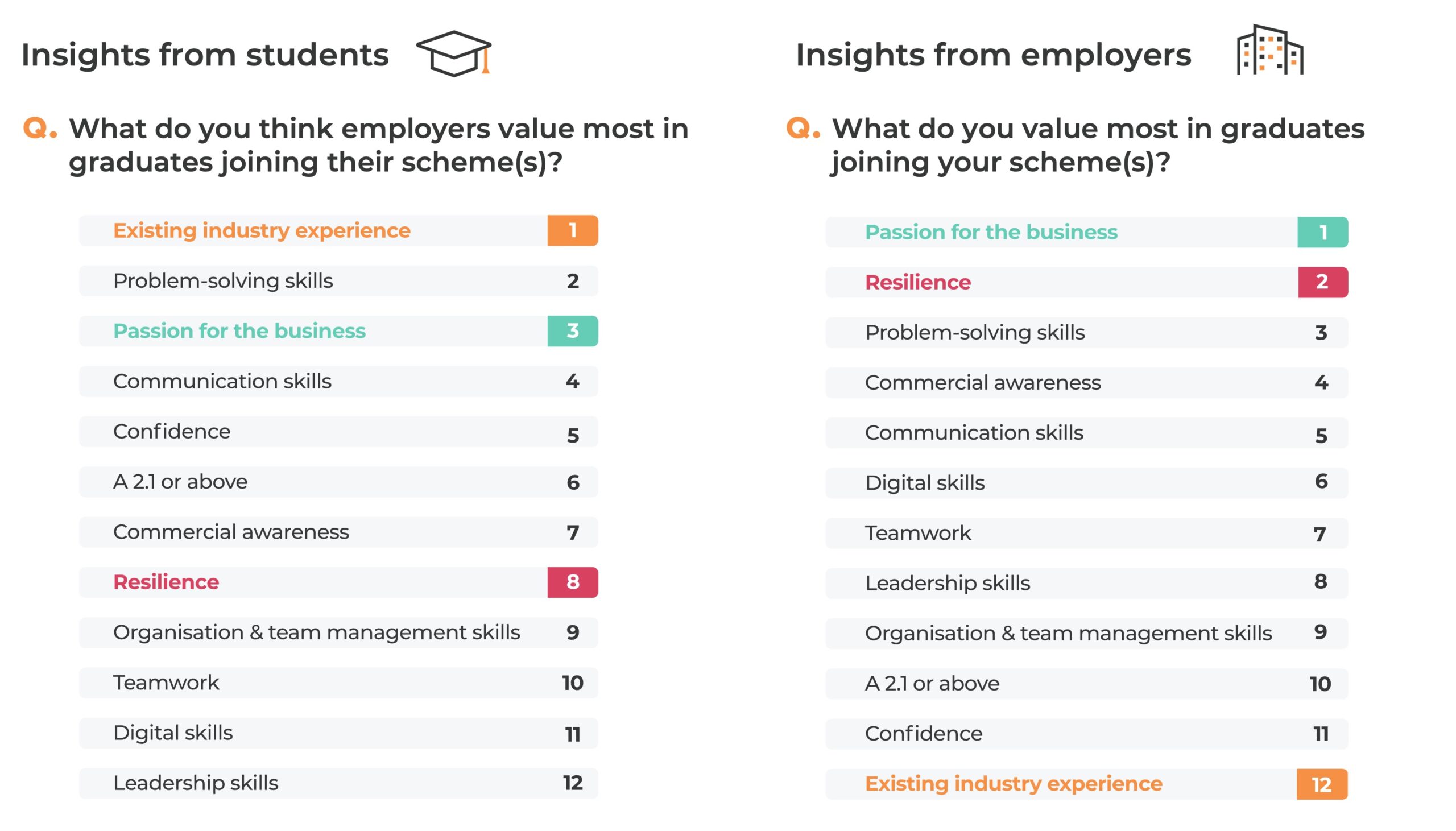
The stark difference in emphasis on existing industry experience is surprising. This is one of the top reasons students aren’t feeling confident about securing a graduate role, meaning they’re likely self-selecting out of processes for roles that they would excel in.
Students deprioritising resilience is problematic. Given Bright Network’s report found that the resilience needed by employers from graduates is lacking in areas such as taking constructive feedback and dealing with setbacks – it’s likely students aren’t fully understanding what workplace resilience looks like.
Bright Network advice
Clearer communication about the actual experience needed for roles is essential, especially if relevant work experience is not required.
Additionally, there’s an education piece needed to help students with how they can translate other experience and extra-curricular activities into strong application answers.
Employers can support in a similar way for resilience, by signposting what it means to their organisations and offering advice on building this skill, as well as creating focused resilience training in onboarding processes.
Don’t expect students to understand the buzzwords and expectations employers have without the proper communication – it sounds obvious, but employers must remember that most of these students have never entered the workplace before.
For more advice on how to address the changing needs of Gen Z as they enter the world of work, read the full report here.
You may also be interested in…
How are early talent adapting to the age of AI?
How are students preparing for work?
3 fundamentals to attract and retain Gen Z and millennials in 2024


0 Comments